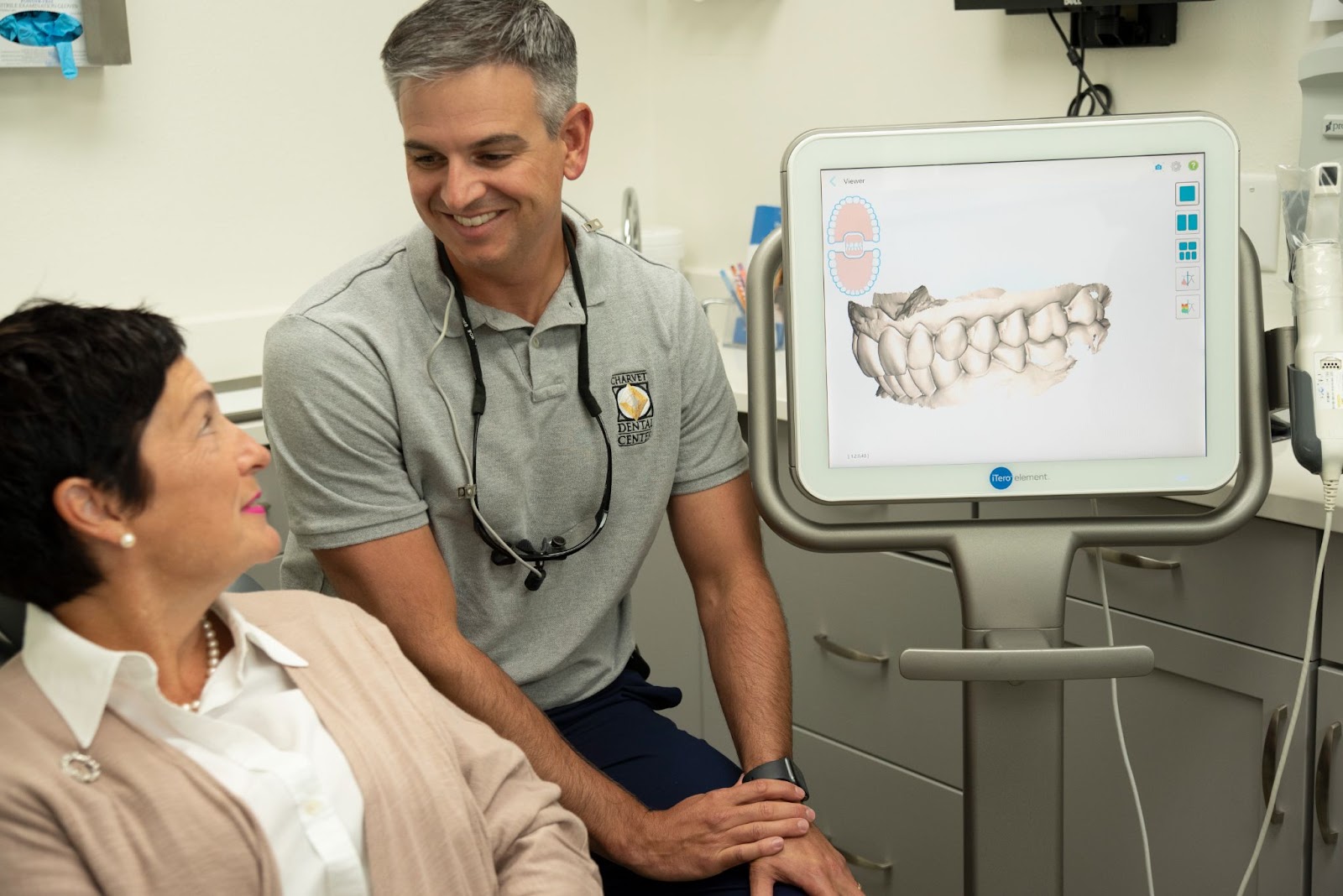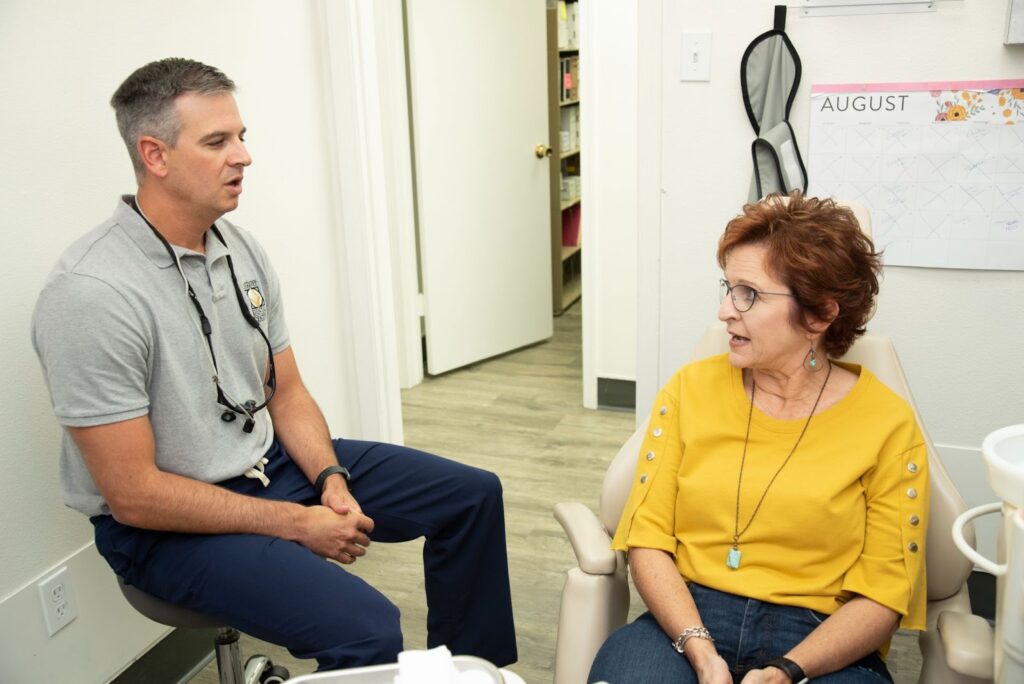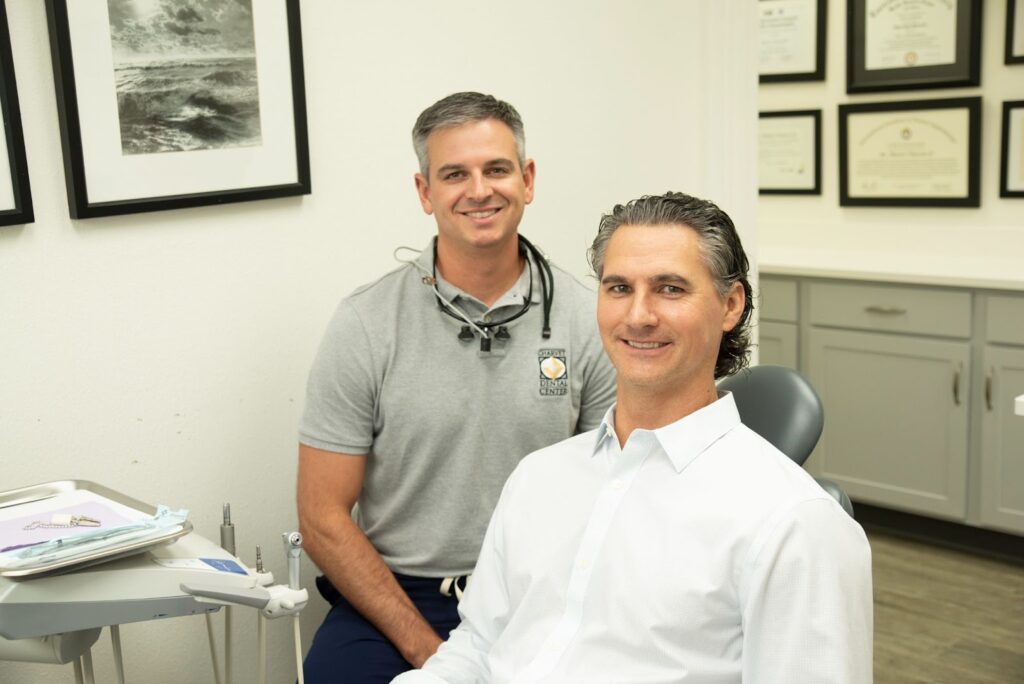At Charvet Dental, we know that the thought of getting a tooth pulled can be intimidating and even a bit nerve-wracking. We understand the importance of providing our patients with a comfortable and informed experience. The more you know about what to expect, the less cause you have for anxiety! To help ease any concerns, we have prepared this comprehensive guide on what to expect when getting a tooth pulled. From the initial consultation to the post-extraction care, we’ll walk you through each step of the process.
Preparing for the Extraction
First, let’s go over the steps you’ll want to take leading up to the extraction procedure. Remember, it’s perfectly normal to be nervous, but we’ve got you taken care of every step of the way!
Consultation with the Dentist
First, you’ll have a consultation with Dr. Hunter or Hunter Jr. Charvet. During this appointment, he’ll examine your tooth and assess the need for extraction. He’ll also discuss the process with you, addressing any concerns or questions you may have.
Risks and Benefits
Dr. Hunter will explain the risks and benefits of the tooth extraction procedure, ensuring you have a clear understanding of the potential outcomes. He’ll also discuss alternative treatment options if applicable. At Charvet Dental, we’ll always examine options that save the tooth first, but there are absolutely situations where extraction is your best option.
Medical History and Medications
It’s essential to provide Dr. Hunter with a complete medical history, including any medications you are currently taking. Certain medical conditions and medications may require special care and adjustment to the procedure before the extraction.
The Tooth Extraction Procedure
Now let’s talk about the process itself. We’ll cover sedation techniques, different types of extraction, and what to do immediately afterward.
Local Anesthesia
Dr. Hunter will administer a local anesthetic to numb the tooth’s surrounding area. This anesthetic will ensure you stay nice and comfortable during the procedure. In fact, half the time, our patients don’t know we’ve started until the tooth is already out!
Types of Extractions
There are two types of tooth extractions: simple extractions and surgical extractions.
- Simple Extractions: This type of extraction is performed on teeth that are visible in the mouth. Using specialized dental tools, your dentist will gently loosen the tooth and remove it from its socket.
- Surgical Extractions: Surgical extractions are required for teeth that have not fully erupted or are impacted. In these cases, an incision may be made in the gum tissue to access the tooth. Sometimes, the tooth may need to be divided into smaller pieces for easier removal.
Post-Extraction Instructions
After the tooth extraction, Dr. Hunter will give you specific instructions. Following these instructions is essential to promote proper healing and minimize the risk of complications. Typical instructions include the following:
- Applying ice packs to reduce swelling
- Taking prescribed pain medications or over-the-counter pain relievers
- Eating soft foods and avoiding hard or chewy foods
- Avoiding smoking and using straws, as these can disrupt the blood clot formation
- Gentle rinsing with warm salt water to keep the extraction site clean
- Scheduling a follow-up appointment for a post-operative check-up
Recovery and Aftercare
Healing Process The initial healing period after a tooth extraction usually takes about one to two weeks. You may experience discomfort, swelling, and minor bleeding during this time. It’s essential to rest, avoid strenuous activities, and follow proper oral hygiene practices to aid the healing process.
You can manage any discomfort and reduce swelling by taking prescribed pain medications or over-the-counter pain relievers as directed by Dr. Charvet. Applying an ice pack wrapped in a cloth to the affected area for 10-15 minutes at a time can also be a great way to control swelling. Remember to avoid hot beverages and foods that may irritate the extraction site.
Oral Hygiene and Care Proper oral hygiene is crucial during the recovery period. However, it’s essential to be gentle around the extraction site. Follow these helpful guidelines to keep you on the right track:
- Brush your teeth gently, avoiding the extraction area.
- Rinse your mouth with warm saltwater several times a day to keep the extraction site clean.
- Avoid spitting forcefully or using mouthwash during the initial healing phase.
Potential Complications and When to Seek Help
While most tooth extractions are straightforward and the healing process is simple and quick, complications sometimes occur. It’s important to be able to know the difference between normal healing and possible issues that could be delaying recovery. Contact Dr. Hunter if you experience:
- Severe or prolonged pain that is not relieved by prescribed medications.
- Excessive bleeding that doesn’t subside after applying pressure.
- Persistent swelling or inflammation beyond the first few days.
- Signs of infection, such as fever, increased pain, or discharge from the extraction site.
Give Us a Call For More Tips!
Understanding what to expect when getting a tooth pulled can alleviate anxiety and ensure a smoother dental experience. At Charvet Dental, we prioritize your comfort and well-being throughout the process. From the initial consultation to the post-extraction care, our dedicated team is ready to show you why we’re Metarie’s favorite dental office.
Give us a call today to set up your appointment, or just fill out this quick and easy online form. We can’t wait to see you smile!
 Schedule Now
Schedule Now


